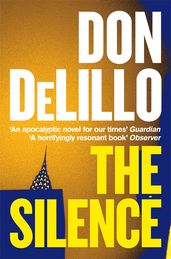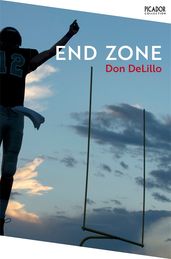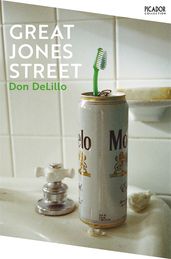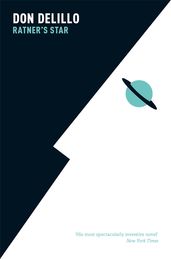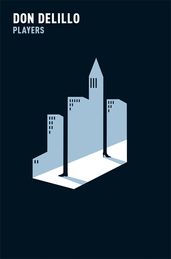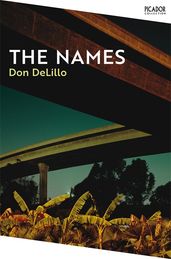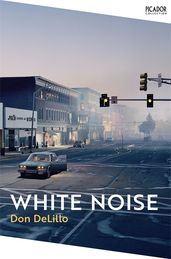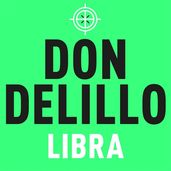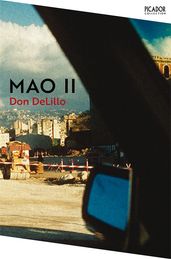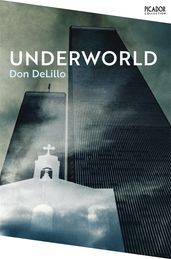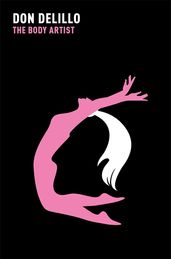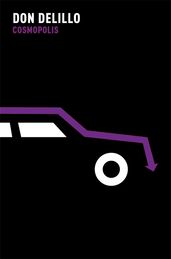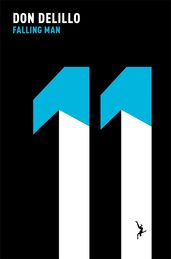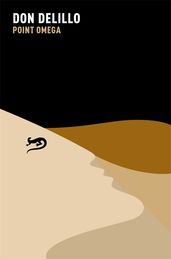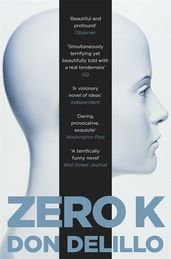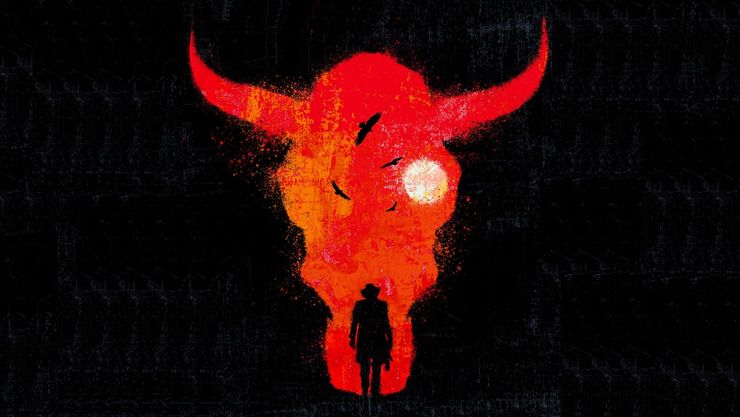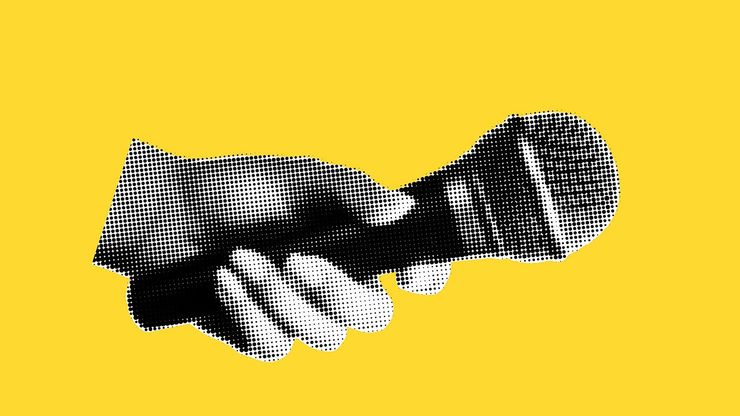Don DeLillo's books: a complete guide
Read on for our complete guide to the books of the incomparable Don DeLillo, from Underworld and White Noise to The Silence.
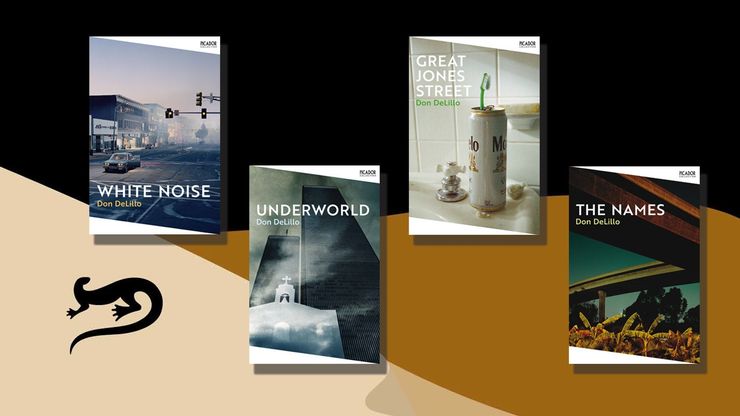
Don DeLillo is one of the greatest living American novelists. Over the last forty-five years he has produced seventeen novels and several plays, many of which are considered to contain some of the finest writing of the twentieth and twenty-first centuries.
Here we share our guide to Don DeLillo, complete with a note from Kris Doyle who worked closely on Don's works in his role as Editorial Director at Picador.
What is Don DeLillo's most recent novel?
The Silence
by Don DeLillo
Don DeLillo has always seen the future in the present, but perhaps never more effectively than with The Silence. Although it was begun before COVID-19 existed, it’s set at a time when a virus that emptied the streets is ‘fresh in the memory’ and an even greater disaster is about to strike. Five people sit together in a New York apartment, facing a night of unbroken silence after a cataclysmic technological blackout. Conversations fracture into fragments as they grope for purpose and understanding, navigating an eerie stillness that’s as disconcerting as it is revealing. DeLillo’s prose – sparse yet deeply affecting – turns the quiet into a character itself, posing urgent questions about technology, dependency, and human resilience in the face of unprecedented isolation.
‘An apocalyptic novel for our times.’
Don DeLillo's books in order
Americana
by Don DeLillo
Americana unspools the surreal journey of David Bell, a jaded television executive who abandons the corporate grind in search of meaning across the American landscape. Disenchanted with the hollow consumerism of his world, Bell embarks on a road trip, armed with a camera and a growing sense of disillusionment. What begins as a documentary project soon morphs into a quest for identity and truth, as he encounters a nation steeped in contradictions and empty spectacle. This audiobook edition is narrated by George Newbern.
End Zone
by Don DeLillo
During a season of unprecedented success, Gary Harkness, a football player and student at Logos College, west Texas, becomes increasingly fixated on the threat of nuclear war. Both frightened and fascinated by the prospect, he listens to his team-mates discussing match tactics in much the same terms as generals might contemplate global conflict. But as the terminologies of football and nuclear war – the language of end zones – become interchanged, the polysemous nature of words emerges, and DeLillo forces us to see beyond the sterile reality of substitution.
Great Jones Street
by Don DeLillo
Bucky Wunderlick is a rock and roll star. Dissatisfied with a life that has brought fame and fortune, he suddenly decides he no longer wants to be a commodity. He leaves his band mid-tour and holes up in a dingy apartment in Great Jones Street. Unfortunately, his disappearing act only succeeds in inflaming interest . . . More than a musical satire: Great Jones Street delivers a scathing portrait of our culture's obsession with the lives of the few.
Ratner's Star
by Don DeLillo
A teenage math genius, Billy Twillig, finds himself ensnared in the surreal world of a remote scientific institute, recruited to decode an extraterrestrial signal. As Billy navigates cryptic theories and bizarre personalities, his journey reveals the humour and disquiet of humanity's quest to understand the universe. DeLillo's work unfolds as both a cerebral satire and a philosophical puzzle, challenging the very notion of knowledge and casting a sly eye on science’s pursuit of an elusive, perhaps unknowable truth. Ratner’s Star is a dazzling exploration of intellect, isolation, and the limits of reason.
Players
by Don DeLillo
Pammy and Lyle Wynant float through their high-powered Manhattan lives like ghosts, numb to the world around them. In Players, Don DeLillo dissects this anesthetised existence with sharp precision, revealing the quiet despair beneath their wealth and sophistication. When Lyle becomes entangled with a mysterious group of terrorists, his descent pulls both him and Pammy into a shadowy underworld that exposes the fragility of their controlled lives. DeLillo masterfully charts this unravelling, blending suspense with existential inquiry, and capturing a world where alienation breeds both longing and danger.
Running Dog
by Don DeLillo
Secret obsessions and buried histories collide in Running Dog, Don DeLillo’s literary thriller that probes the dark allure of power and the voyeuristic urges of American culture. The plot centers around a Nazi film, rumored to capture Hitler’s final days in a shocking, depraved scene, which becomes the target of ruthless players – journalists, intelligence agents, and collectors – hungry to claim it. As the pursuit intensifies, DeLillo exposes a surreal world where conspiracy and desire blur, revealing the twisted underside of a culture fixated on both spectacle and secrecy.
The Names
by Don DeLillo
James Axton, an American risk analyst working in Greece, finds himself pulled into a chilling mystery in The Names. Set against the political and cultural tensions of expatriate life, Axton’s world grows increasingly surreal as he investigates a cult that performs ritual murders linked to language and ancient symbols. DeLillo’s narrative unfolds across sun-scorched landscapes in the Middle East and South Asia, where Axton’s search for understanding turns deeply personal, forcing him to confront his own fragmented identity and the forces shaping Western society.
White Noise
by Don DeLillo
Jack Gladney, pioneering professor of Hitler Studies at a quiet Midwestern college, is used to navigating the mundane absurdities of family life and academia. But Jack faces a far more disquieting reality when an 'Airborne Toxic Event' forces his family to confront a creeping, ever-present dread of death. As they navigate a world saturated with media voices, pharmaceuticals, and consumer distractions, Jack and his wife Babette struggle to find solace amidst the noise. DeLillo’s novel is a hauntingly funny exploration of mortality, fear, and the desperate ways people seek meaning in a society obsessed with both consumption and oblivion.
‘An extraordinarily funny book on a serious subject, effortlessly combining social comedy, disaster, fiction and philosophy.’
Libra
by Don DeLillo
In Libra, Don DeLillo revisits the events leading up to President Kennedy’s assassination through the life of Lee Harvey Oswald, imagining the personal and political forces that might have influenced one of America’s most infamous figures. DeLillo portrays Oswald not as a lone gunman or clear villain but as a complex, often confused young man caught between grander schemes beyond his control. Moving between Oswald’s perspective and the calculated maneuvers of CIA operatives and government officials, the novel offers a nuanced look at the shadowy intersections of ambition, ideology, and fate.
Mao II
by Don DeLillo
Reclusive novelist, Bill Gray, is haunted by both his fame and his waning creative power. After years of isolation he is drawn into a terrorist hostage crisis that pulls him from his sheltered existence into unsettling confrontations with political violence and media influence. Gray wrestles with the role of the writer in an age dominated by mass spectacle and extremism where crowds, images, and terror often hold more power than words. Mao II is a profound meditation on the shifting place of the artist in modern society, capturing the struggle between the solitary voice and the relentless forces of collective identity.
Underworld
by Don DeLillo
Underworld opens – famously – at the Dodgers-Giants 1951 National League final, where Bobby Thomson hits The Shot Heard Round the World and wins the pennant race for the Giants. But on the other side of the planet, another highly significant shot was fired: the USSR's first atomic detonation. And so begins a masterpiece of gloriously symphonic storytelling. As DeLillo layers the lives of artists, scientists, and everyday people, he reveals the quiet threads binding individuals to collective memory, linking private obsessions to national consciousness.
The Body Artist
by Don DeLillo
Lauren Hartke, a performance artist grieving her husband’s sudden death, finds her world upended by a strange presence in their empty coastal house. This mysterious figure, who eerily mimics her husband’s gestures and words, pushes Lauren to confront her deepest memories and question her sense of reality. As she moves through this encounter, her journey becomes one of understanding grief, identity, and the blurred lines between the past and present. In The Body Artist, Don DeLillo crafts a quiet, powerful story about loss and the ways we search for meaning in the spaces left behind by those we love.
Cosmopolis
by Don DeLillo
Eric Packer, a young billionaire asset manager, sets out in his stretch limousine for a haircut across New York City, but his journey quickly spirals into a day of chaos and self-destruction. Don DeLillo captures a single day in which Packer’s world unravels, mirroring the instability of the financial empires he controls. As he encounters protests, financial ruin, and personal threats, his obsessive need for control clashes with the unpredictable forces around him. Cosmopolis is a sharp, dark exploration of a man – and a culture – on the edge.
Falling Man
by Don DeLillo
Keith Neudecker, a survivor of the September 11 attacks, emerges from the wreckage and returns to his estranged wife, Lianne, and their son, struggling to find his place in a life irrevocably altered. Haunted by memories he can’t escape, Keith’s attempt to reconnect unfolds alongside a performance artist’s eerie re-enactment of a man falling from the towers – a stark, unsettling symbol that mirrors the city’s collective trauma. Falling Man captures the quiet, disorienting aftershocks of catastrophe, exploring how people confront, absorb, and reshape their lives in the wake of unimaginable loss.
Point Omega
by Don DeLillo
In a desert retreat far from civilisation, retired war adviser, Richard Elster, spends his days with a young filmmaker intent on documenting his thoughts on war, time, and existence. Point Omega follows their tense, philosophical exchanges as they attempt to capture the essence of a world shaped by violence and secrecy. When Elster’s daughter arrives, her sudden disappearance shifts the story into darker, more mysterious territory. Through spare, hypnotic prose, the novel explores the quiet tension between isolation and connection, the limits of understanding, and the human impulse to seek meaning in an uncertain world.
Zero K
by Don DeLillo
Ross Lockhart has committed himself to the Convergence, a secret facility where the terminally ill are cryogenically preserved, awaiting a future where science might revive them. When he brings his terminally ill wife to the facility, his son Jeffrey joins them, unsettled by a place that promises escape from death. Zero K explores how far people will go to escape mortality, drawing out the emotional and ethical tensions in a world where technology offers new illusions of control.
The Silence
by Don DeLillo
A sudden digital blackout throws five people into a world without screens, signals, or connections in The Silence. Gathered in a New York apartment, they struggle to comprehend a reality unmediated by technology. Cut off from the digital hum that once shaped their lives, they face themselves and each other with a new, unsettling intimacy. DeLillo’s spare, haunting prose captures the vulnerability and strangeness of a world stripped of its familiar distractions, probing the quiet terror – and possibility – of life unplugged.
Why read Don DeLillo?
Don DeLillo is one of America’s most important and influential writers. He is perhaps the quintessential American novelist. Why? He engages with the history of his country and predicts its future with a freakish accuracy; he catches the voices, fears and hopes of the full range of Americans; the capaciousness of his work only serves to highlight his omnicompetence.
DeLillo has interrogated consumerism, intellectualism, terrorism, digital technology, the family, death, the power of violence, the impact of the Atomic Bomb; the list goes on. The importance of America, especially in the global events of the twentieth century, would ensure his relevance to readers everywhere, even if it weren’t for the fact that we in the West live in an increasingly homogenised culture, an increasingly American culture.
But for me, what makes him special isn’t all of this grand-sounding stuff.
The feeling I love most when reading is perhaps best called extrusion, that delightful rush that comes when the pull of a writer’s words on the page draw you towards a new experience: the quick expansion of consciousness, the shock of recognition, the delicious and surprising hit of emotion.
Some writers choose to think in macro terms and some at the micro-level of the sentence; DeLillo can do both. At his best, I think he’s one of few writers who can do them simultaneously. DeLillo writes books that are smart, funny, perceptive, moving, relevant and true because he can think big and write small. He gives himself more opportunities than most writers to bring the reader’s consciousness up to join him because of the fearlessness with which he explores the terrain of the world he finds himself in and the equal fearlessness of the way he deploys language to offer us his visionary remaking of it.
Every book feels like an act of deep thinking and we rush to meet him because he’s always out in front, there on the horizon, aiming for the bright edge.
